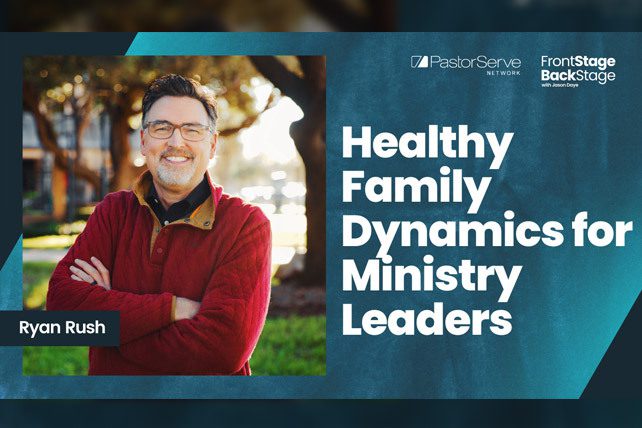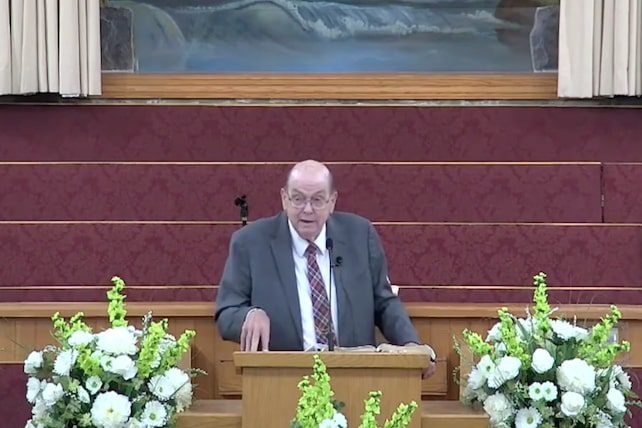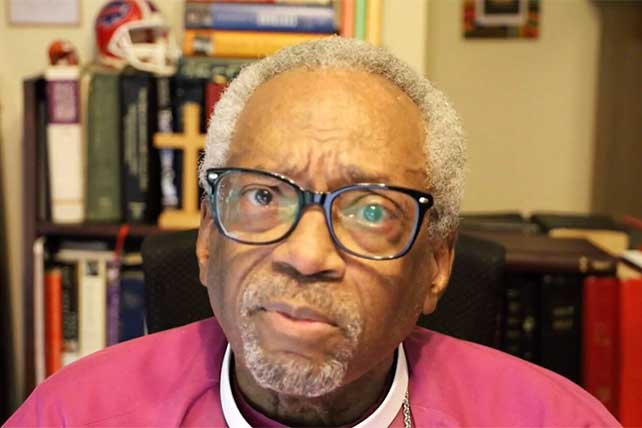(RNS) — After months of allegations that it lacks a credible process for disciplining its bishops, the Episcopal Church is taking steps to make it simpler to report misconduct, Presiding Bishop Michael Curry said in an announcement Thursday (Feb. 22).
“Given the current atmosphere, I have chosen to exercise my canonical discretion to adopt a general protocol for transparency in Title IV matters involving Bishops,” Curry wrote in a letter delivered to the Episcopal Church’s House of Bishops, referring to the denomination’s internal mechanism for holding clergy accountable.
The changes are intended to address a string of allegations against Episcopal bishops and come after lay and ordained Episcopalians have voiced their concerns about Title IV publicly.
RELATED: The Episcopal Church Reckons With Tangled Protocol on Clergy Abuse and Accountability
Last year, Julia Ayala Harris, who as president of the Episcopal House of Deputies is the second-highest ranking officer of the church, made public a letter detailing her concerns about her own experience after she filed a formal complaint against a retired bishop who, she said, had subjected her to “non-consensual physical contact” and “inappropriate verbal statements.” Rather than discipline the bishop, the church referred him to pastoral counseling.
That same year, a priest filed a Title IV complaint against Florida Bishop John Howard, alleging he discriminated against LGBTQ clergy and supporters. In December 2022, Michigan Bishop Prince Singh was accused by his sons and ex-wife of physical and emotional abuse, but no Title IV process was begun for six months.
In September 2023, 55 Episcopal bishops aired their concerns in an open letter about the “perception — or the reality — that bishops get a free pass on behavioral issues.” In response, Curry instructed the church’s Standing Commission on Structure, Governance, Constitution and Canons to “recommend to the General Convention (the church’s governing body) needed canonical and procedural changes in ecclesiastical discipline of bishops.”
The Standing Commission has collected feedback on the Title IV process and, according to a spokesperson from the Episcopal Church, will publish a report on this topic in anticipation of the General Convention this summer. It is yet to be seen whether the report will focus on bishops’ misconduct or Title IV as a whole.
Last year, the denomination tapped the Rev. Barbara Kempf, a priest and attorney, to be the Title IV intake officer for bishops, ensuring that a nonbishop is serving in that role. Curry’s letter also indicates that Kempf is in the “early stages” of assembling a pastoral response team for those impacted by Title IV processes involving bishops.
The changes announced Thursday include clearer instructions for reporting bishop misconduct on the denomination’s website, public updates on Title IV processes involving bishops and a new annual statistical report on Title IV cases involving bishops.
A blue “Report Misconduct” button now appears in the top right corner of the Episcopal Church’s homepage. The button leads to an informational page on Title IV with a step-by-step breakdown of Title IV processes involving bishops and a link to report bishops.
The website also includes a new list of public Title IV cases involving bishops. In his letter, Curry explained that the list will be updated at his discretion and will include the status of each complaint.
“In the canons we see a balancing of the benefits of transparency against the benefits of some measure of privacy,” Curry wrote. “Striking the right balance may help us get closer to the lofty goals set out in Canon I of Title IV — ‘healing, repentance, forgiveness, restitution, justice, amendment of life and, reconciliation among all involved or affected.’”
Nivedhan Singh, Bishop Singh’s elder son, said the new Title IV updates feel like too little, too late. “Transparency without accountability is useless to us,” Nivedhan told Religion News Service. An improved website, he said, doesn’t help if the Title IV process itself is mishandled or causes additional harm to abuse survivors.
Prince Singh, who resigned in September, is facing two Title IV investigations — the second involves allegations of improper behavior from his time as bishop of Rochester, New York. Curry and Bishop Todd Ousley, the former intake officer for Title IV complaints involving bishops, are also the subjects of ongoing Title IV complaints related to their response to the Singhs’ abuse allegations.
Nivedhan Singh said the updates function as an “admission of guilt” that reveals the denomination’s awareness that something in the Title IV process is broken, but he said the denomination failed to apologize to those the process has already harmed.
Nivedhan Singh continues to call for an independent, third-party investigation into the actions of the presiding bishop and Ousley, and for pastoral care for his family, an element of the Title IV process he claims has not been fulfilled.
Curry, who has been receiving medical treatment for internal bleeding and heart conditions, is in the last year of his nine-year term.
This article originally appeared here.









 How can we better embrace healthy family dynamics in our own homes as pastors and ministry leaders? In this week’s conversation on FrontStage BackStage, host Jason Daye is joined by Ryan Rush. Ryan is lead pastor of Kingsland Baptist Church in Katy, Texas. He’s a national voice in the Faith at Home movement, and his latest book is titled “Restore the Table.” Together, Ryan and Jason look at some of the unique challenges we have as ministry leaders when it comes to healthy family dynamics, including the fact that we often feel our families are under a microscope. Ryan shares some incredibly practical tools and strategies to help you foster and nurture a healthy family, including some ideas around mealtimes. And you’re not going to want to miss his 10-second rule when it comes to having conversations with your kids.
How can we better embrace healthy family dynamics in our own homes as pastors and ministry leaders? In this week’s conversation on FrontStage BackStage, host Jason Daye is joined by Ryan Rush. Ryan is lead pastor of Kingsland Baptist Church in Katy, Texas. He’s a national voice in the Faith at Home movement, and his latest book is titled “Restore the Table.” Together, Ryan and Jason look at some of the unique challenges we have as ministry leaders when it comes to healthy family dynamics, including the fact that we often feel our families are under a microscope. Ryan shares some incredibly practical tools and strategies to help you foster and nurture a healthy family, including some ideas around mealtimes. And you’re not going to want to miss his 10-second rule when it comes to having conversations with your kids.


















